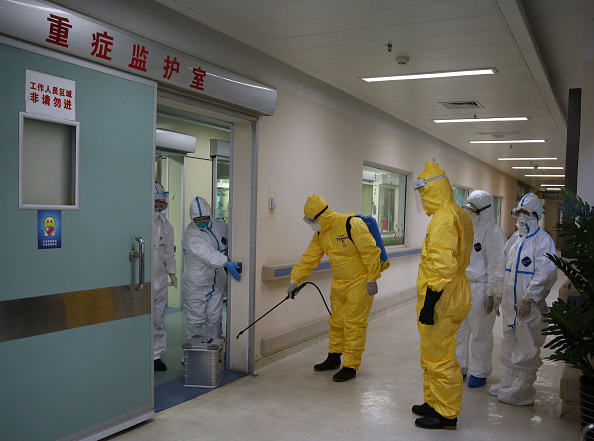TOKYO – A scientist who helped to discover the Ebola virus says he is concerned that the disease could spread to China given the large numbers of Chinese workers travelling to and from Africa.

Peter Piot, who is director of the London School of Hygiene and Tropical Medicine, said Thursday it’s not “rocket science” that with many exchanges between the two regions the disease could spread.
“The concern I have is that I don’t think you can really stop people from travelling. These patients will show up in any country in the world, but China is quite vulnerable,” Piot said.
“The issue is: What is the quality, the standard of infection control? In public hospitals in China, the ones that I’ve visited, the level of infection control is very poor,” he said.
Piot said China’s controls for infectious diseases have improved and authorities have become more open about public health risks since severe acute respiratory syndrome, or SARS, broke out in southern China in 2002. SARS infected about 8,000 people worldwide, killing nearly 800.
Conversely, Japan has disease controls and hygiene that are up to international standards, but it needs to do more to help combat what has become not just an epidemic but a humanitarian crisis, said Piot, a board member of the Global Health Innovative Technology fund, a collaboration funded by the Japanese government, Japanese pharmaceutical companies and the Bill & Melinda Gates Foundation.
The fund supports research into treatments for malaria, tuberculosis, dengue and other so-called neglected tropical diseases. Piot said that despite the urgency of the crisis, it was crucial that funds going to those efforts not be diverted to work on Ebola.
Treating the Ebola outbreaks as a humanitarian crisis would help overcome worries over budgetary issues, he said.
Japan has pledged $40 million so far to help combat the Ebola outbreak, but Piot said more is needed.
“I appeal to Japan to contribute from their very rich tradition, in all senses of the word of humanitarian assistance.”
“When there is a humanitarian crisis, there is always money, and rightly so,” Piot said. “Ebola is in that category.”

Comments